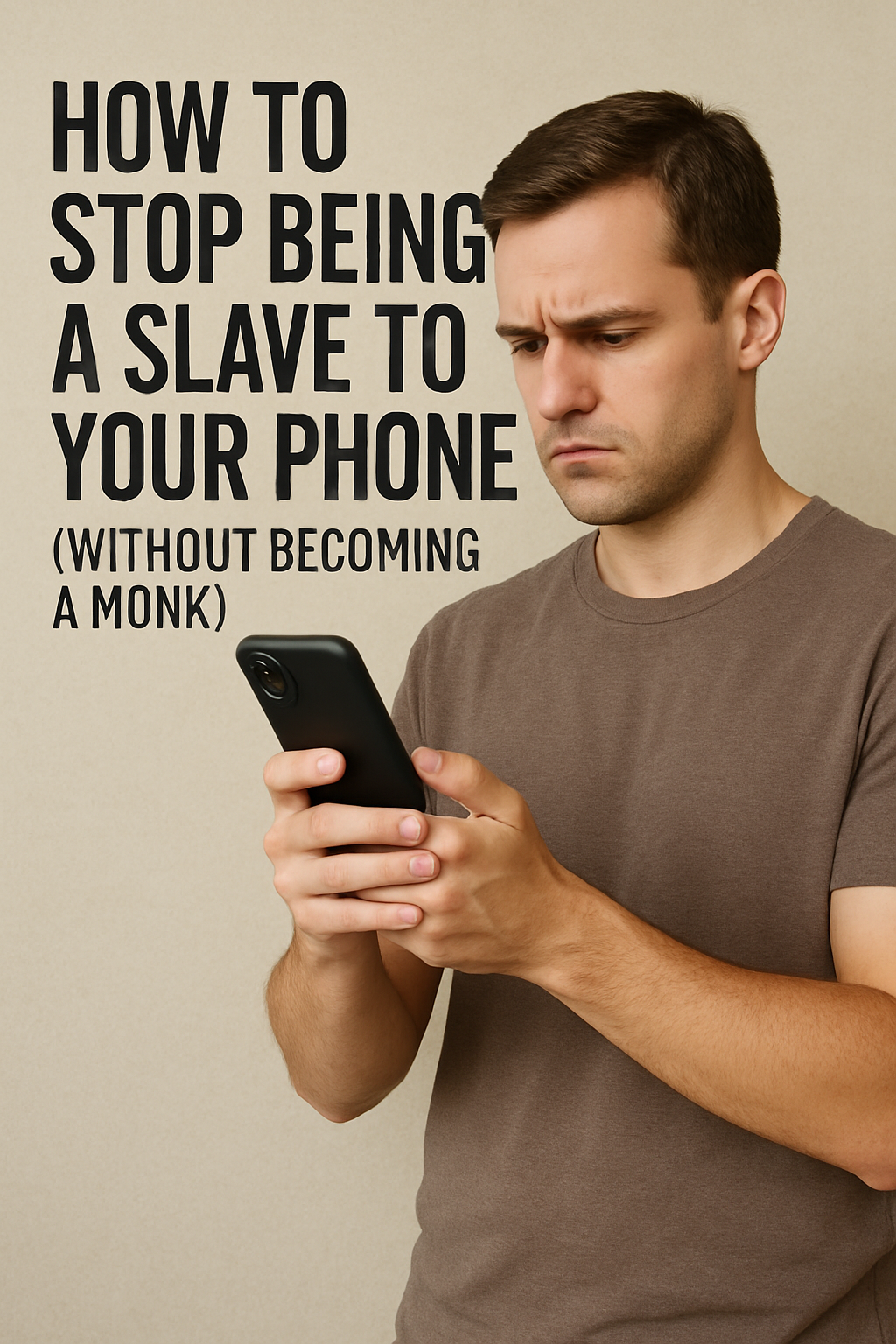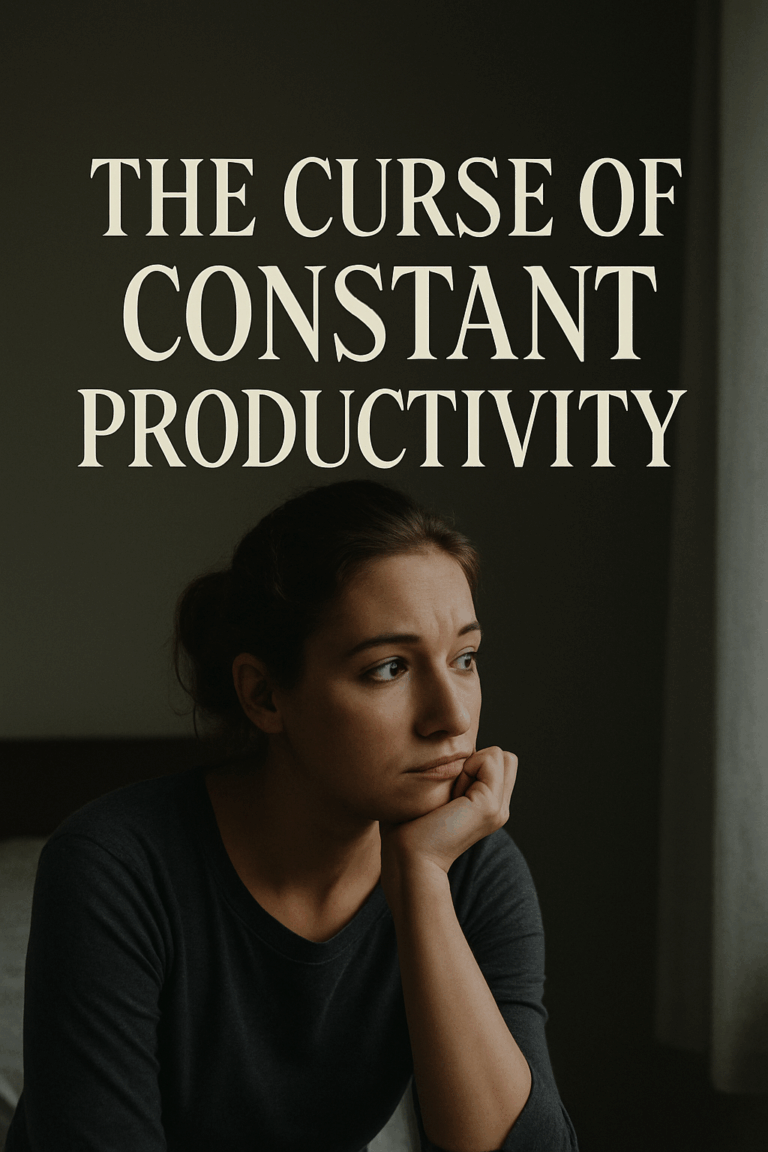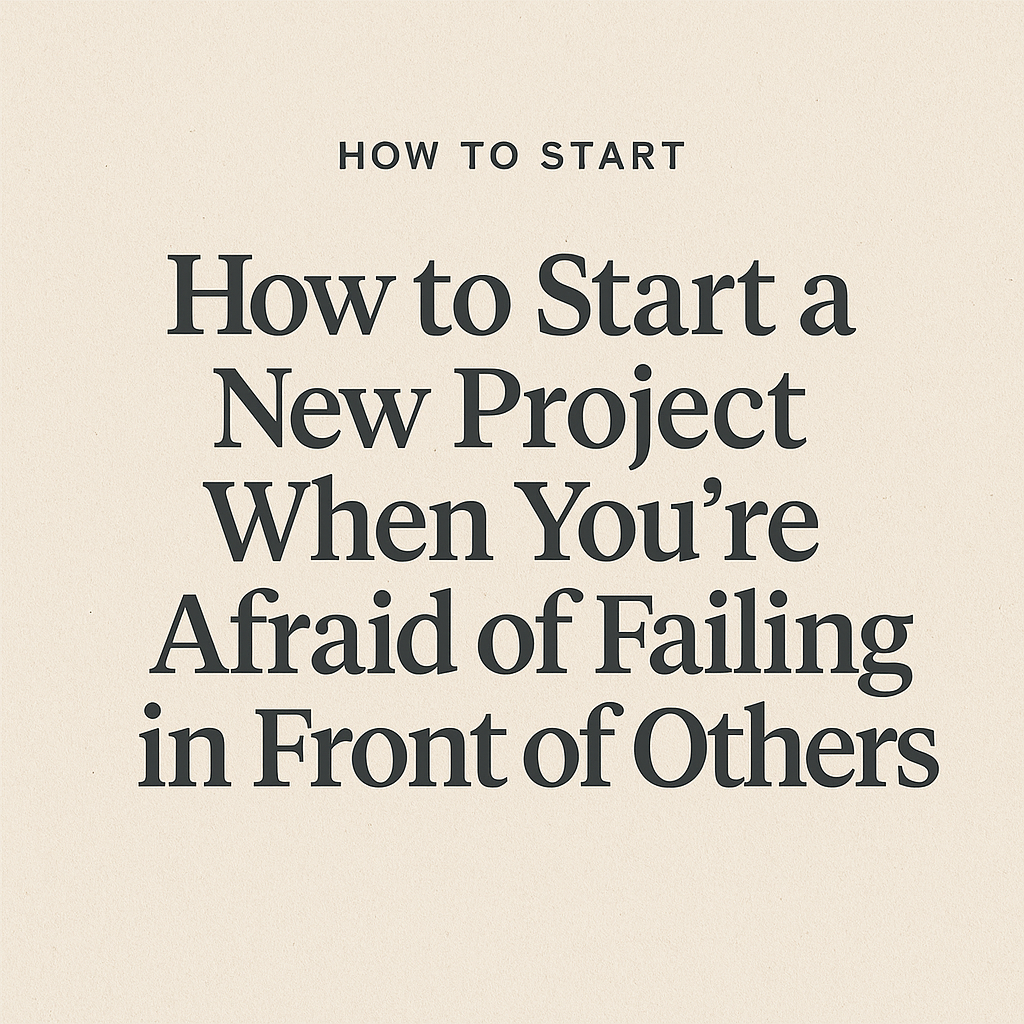How to Stop Being a Slave to Your Phone (Without Becoming a Monk)
We’ve all done it. You pick up your phone to check the time — and suddenly it’s 40 minutes later. You’re deep in a rabbit hole of reels, group chats, breaking news, and random memes. And the worst part? You didn’t even enjoy it.
It’s not your fault entirely. These devices were engineered to keep your eyes glued, your brain buzzing, and your dopamine dripping. But if you don’t take back control, you’ll keep living life on someone else’s terms — constantly reacting instead of creating, consuming instead of connecting.
The good news? You don’t need to throw your phone in a lake or disappear into a forest retreat to reclaim your focus. In this guide, we’ll break down exactly how to stop being a slave to your phone — without becoming a monk.
1. Understand What Your Phone Is Doing to You
Before you can fix the problem, you need to face it. Here’s what excessive phone use is really doing to your mind and body:
- It hijacks your attention. Your brain becomes wired to crave constant novelty and stimulation.
- It increases anxiety and fatigue. The endless flow of notifications, bad news, and comparison triggers chronic stress.
- It kills your deep focus. You stop being able to sit still, think clearly, or even finish a thought without distraction.
- It disrupts sleep. Blue light and dopamine hits late at night confuse your body’s natural rhythm.
Admitting this isn’t weakness. It’s power. It’s the first step in building a new relationship with your phone — one where you’re the master, not the servant.
2. Track Your Screen Time (But Don’t Obsess Over It)
Most guys underestimate how much time they actually spend on their phones. Check your weekly screen time report. You’ll probably be shocked. But instead of guilt-tripping yourself, just observe it. Use it as data.
Ask yourself:
- Which apps are sucking up the most time?
- Am I using my phone with intention or just out of habit?
- How do I feel after long scroll sessions — calmer or more anxious?
Awareness is half the battle.
3. Use the “Home Screen Reset” Method
One of the most practical ways to instantly reduce your phone addiction is to clean up your home screen. Try this:
- Remove all non-essential apps from your home screen (especially social media).
- Move those addictive apps into folders that require two or more taps to open.
- Make your home screen boring: keep only tools — like calendar, notes, maps, or meditation apps.
Why it works: you interrupt the autopilot behavior. You stop “accidentally” opening Instagram or TikTok just because your thumb was bored.
4. Set Time Limits — But Make Them Realistic
Use app limits (iOS Screen Time or Digital Wellbeing on Android) to give yourself a cap. But here’s the key: make the limits flexible, not punishing. If you go too extreme too fast, your brain will rebel.
Start with a 1-hour daily cap on social media. Then reduce it over time. Or try the reverse: only allow yourself to check social media during a set time block (e.g., 6–7pm).
Make your phone serve you, not the other way around.
5. Create Phone-Free Zones (and Honor Them)
This one changes everything — fast. Decide where your phone is simply not allowed, no exceptions. Here are three places to start:
- Your bed. Sleep and scrolling don’t mix.
- Your dinner table. Meals are for presence and conversation.
- Your workspace (during deep work). Use airplane mode or put it in another room.
These boundaries help you train your brain to detach. You regain mental clarity and peace in the spaces where it matters most.
6. Turn Off 90% of Notifications
Every ping, buzz, and banner is a little “pay attention to me” command. Most of them are unnecessary.
Here’s a rule that works: if it’s not from a real person, it doesn’t need to notify you.
Turn off:
- All social media alerts
- News headlines
- Shopping app deals
- Random game invites
Keep only calls, texts, or calendar events if needed. Your brain will thank you.
7. Replace the Habit — Don’t Just Remove It
If you try to quit your phone without replacing the behavior, you’ll get bored — and bored brains go right back to scrolling.
Instead, give yourself something better. When you feel the urge to pick up your phone, try:
- Reading 5 pages of a real book
- Going for a short walk
- Doing 10 push-ups or stretching
- Journaling your thoughts or feelings
Small swaps compound over time. Your brain starts craving the new reward.
8. Try a 24-Hour Phone Detox (Once a Week)
Choose one day a week (Sunday is perfect) to fully unplug. Turn your phone off. Let people know in advance. And just be.
Go outside. Cook. Talk to someone. Be bored on purpose.
At first, it’ll feel strange. But soon, you’ll realize something profound: you don’t need your phone to feel alive.
9. Use Technology That Helps You Disconnect
Your phone can also help you disconnect — if you use the right tools. Try apps like:
- Forest: grow a virtual tree by not touching your phone
- One Sec: adds a pause before opening addictive apps
- Freedom: blocks distractions across devices
- Insight Timer: for guided meditations and breathwork
Tech isn’t the enemy. Mindless tech use is.
10. Ask the Bigger Question: What Are You Avoiding?
Here’s the part most people skip: phone addiction is often a symptom, not the root.
Ask yourself:
- What am I avoiding when I scroll?
- What emotions am I numbing?
- What would I do with this time if I was fully present?
When you face what you’ve been running from — loneliness, anxiety, dissatisfaction — the need for distraction fades. Your clarity returns. Your presence grows.
Final Words: You Don’t Need to Be Perfect. Just Present.
This isn’t about becoming some perfect, enlightened, tech-free man. It’s about taking back your attention — your most valuable resource.
You don’t need to delete every app or move to the mountains. You just need to make small shifts — in habits, in awareness, in boundaries. And over time, those shifts change everything.
You’ll notice your thoughts are clearer. Your conversations are deeper. Your body is calmer. Your creativity returns. And most of all, you stop feeling like a slave to a screen.
It’s not about the phone. It’s about your life. And it’s time to take it back.
Enjoyed this article? Share it with someone who’s always glued to their screen. Or better yet — look them in the eye and talk about it in person.







